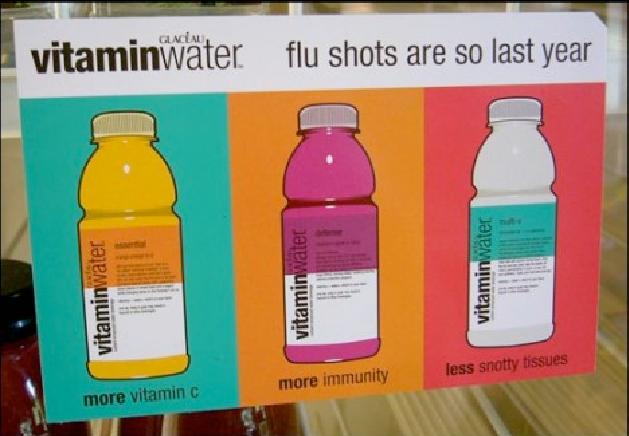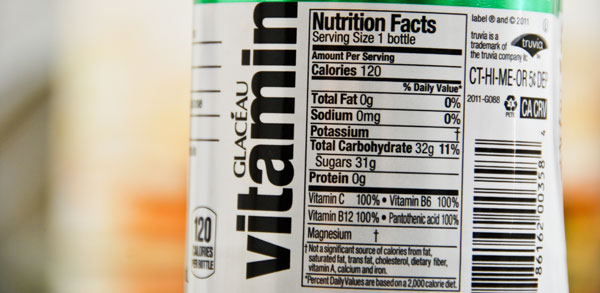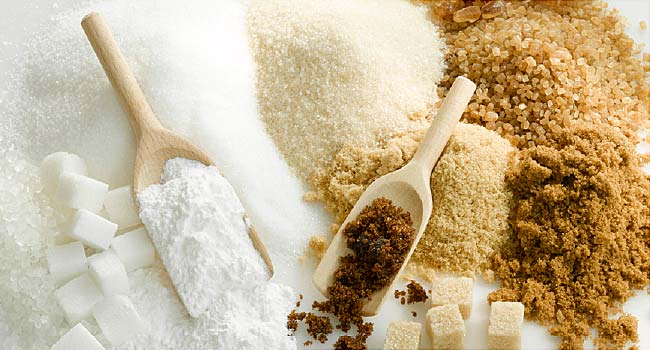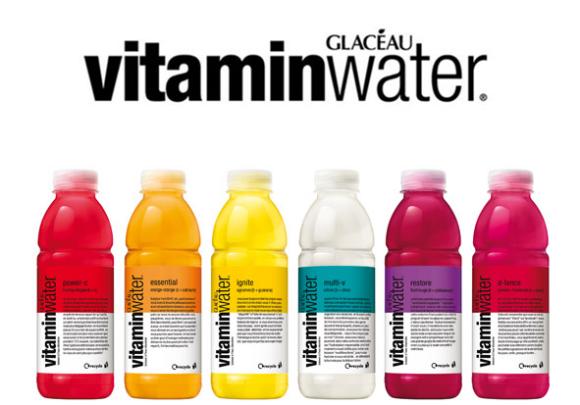Chances are, you’ve heard of vitaminwater. Launched in 2000, it quickly became popular as an alternative to soda — vitaminwater advertises itself as a “nutrient enhanced water beverage,” and each different flavor is labeled with words such as “defense,” “focus,” “essential,” and “revive.” Thus, it’s easy to assume that this product is beneficial for you. However, don’t judge a book by its cover, or in this case, a sugary beverage advertising itself as a healthier alternative to soda.

Photo courtesy of forbes.com
Despite the advertisements saying that it’s chock full of necessary vitamins and minerals, vitaminwater is really just watered-down juice, trying to claim itself as the best thing ever to happen to you. In fact, Coca-Cola, the owner of vitaminwater, even ran an advertisement a couple years ago stating that “flu shots are so last year,” claiming the benefits of vitaminwater, among other misleading ads.

Photo courtesy of drinkwhat.com
It sounds simple enough — vitamins plus water equals vitaminwater, right? Turns out, nope. For one serving size of 20 fluid ounces, the drinks from their regular line contain 120 calories each and around 31 to 32 grams of sugar. A regular can of Coca-Cola contains 39 grams of sugar. You don’t have to do any math to figure out that for a drink that advertises itself as vitamin-enriched water, it has a pretty high sugar content comparable to that of a can of soda.

Photo courtesy of webmd.com
This false advertisement is important because an increased intake of sugar is related to many adverse health problems, one of which is diabetes, the 7th leading cause of death in the United States. Consuming a large amount of sugar doesn’t directly cause diabetes, but the resulting weight gain increases your chance of developing it.
Moreover, research has shown that there is a correlation between increased sugar intake and type 2 diabetes rates. Using large-scale population-based data from 175 countries over the last 10 years, researchers from UCSF found that sugar plays a prominent role in factors that contribute to diabetes risk.

Photo courtesy of adweek.com
The truth is, there are many products out there that advertise themselves exactly like vitaminwater does. There are even products that claim to have zero calories and zero grams of sugar, labeling themselves as harmless flavored water beverages (sound familiar?). However, what’s most important is that you know what you’re putting into your body. So, it’s up to you to read the nutrition label and decide what’s best for your lifestyle.


